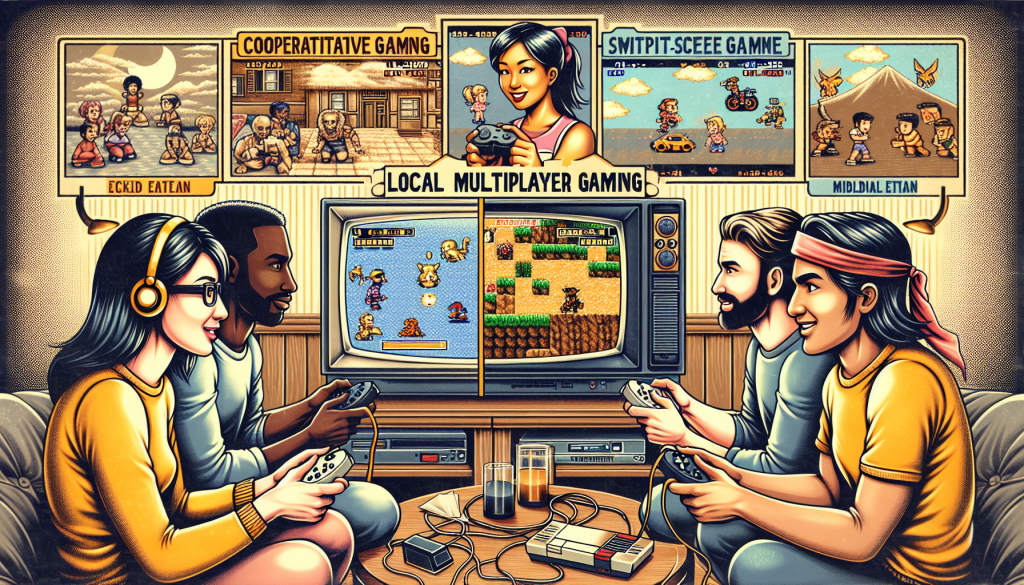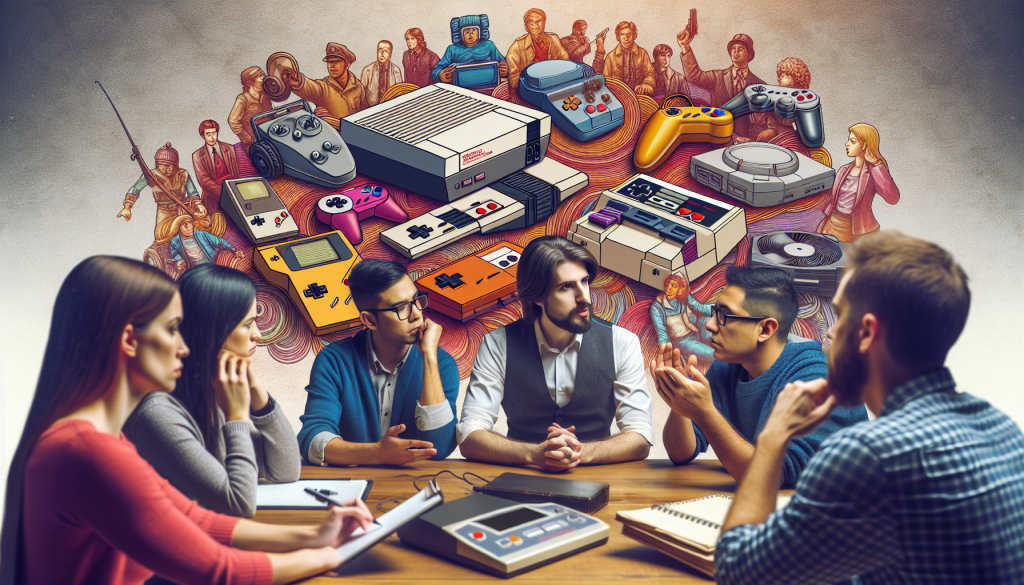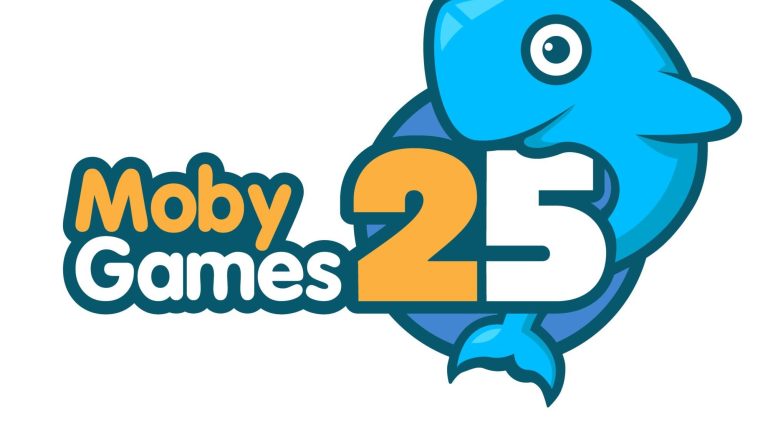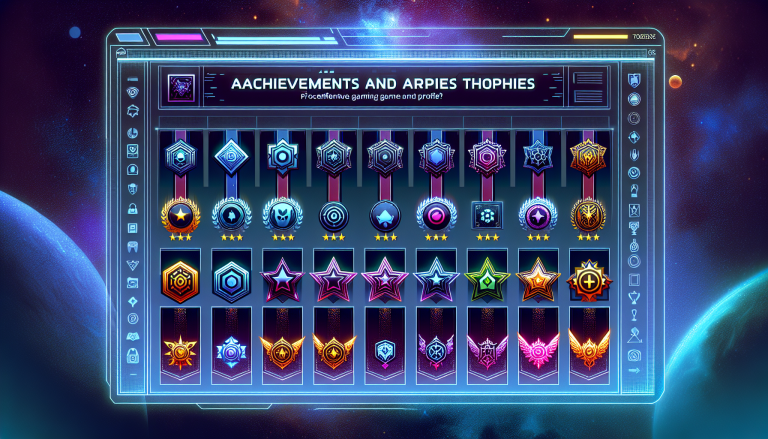Understanding the Psychology of Competitive Gaming
When you think of competitive gaming, or esports, the first thing that probably comes to mind is a group of players, intensely focused on their screens, furiously clicking their mice or pressing buttons on their controllers. But did you know that there’s a whole other layer to this fast-growing sport, one that deals with the mental and psychological aspects?Competitive gaming and psychology: an intriguing combination
Competitive gaming requires a lot more than just quick reflexes and dexterity. It demands a deep understanding of the game mechanics, strategic planning, communication skills, and a high level of mental stamina. This fascinating interplay between the mind and the game is what we refer to as the psychology of competitive gaming.The Mental Aspect of Gaming
Remember, games aren’t won solely by having the highest skill level or the fastest reaction time. It’s also about outsmarting your opponents by predicting their moves, understanding their strategies, and adapting quickly to changes. In fact, some esports professionals even work with sports psychologists to improve their mental resilience and focus.- Stress and Anxiety: Competitive games can get pretty intense, causing significant stress and anxiety. Learning to manage these emotions can provide a competitive edge.
- Decision Making: Fast and accurate decision-making is crucial in esports. Players often have to make split-second decisions that can make or break the game.
- Mental Stamina: Gaming tournaments can last for several hours. Players need to maintain their concentration levels throughout, which requires significant mental endurance.
Role of Team Dynamics
Let’s not forget the importance of effective communication and team dynamics in multiplayer games. Esports teams need to work together like a well-oiled machine. This requires trust, understanding, and exceptional communication.- Building Trust: Team members need to trust each other’s abilities and decisions. This can be built through practice and clear communication.
- Communication: Effective communication can make a significant difference in team games. Players need to relay information quickly and clearly to their teammates.
- Conflict Resolution: With high stakes, conflicts may arise amongst team members. Understanding how to resolve these effectively can keep the team morale high and prevent disruptions.
Cognitive Skills and Strategies for Gaming Success
Let’s dive headfirst into the exciting world of gaming, specifically, the cognitive skills and strategies players employ to secure the win. You might be surprised to learn that successful gaming is as much a mental game as it is a test of quick reflexes and motor skills. So, grab your controllers, let’s get started!
Understanding the Cognitive Landscape of Gaming
It’s a common misconception that video games are simply mindless fun. However, studies show that they actually provide a fertile training ground for a variety of cognitive skills. So, what are these skills, you ask? Let’s explore.
- Decision Making: Gamers need to make quick decisions on the fly, often in high-pressure situations. This requires gamers to analyze complex scenarios in real-time and make the best possible move.
- Memory: Players often need to remember intricate game details, from level layouts to character abilities, and utilize them effectively to progress in the game.
- Problem-Solving: Most games, especially strategy games, involve a ton of problem-solving. Gamers need to figure out how to overcome challenges and obstacles with the resources available to them.
Strategies for Success
The second part of this gaming success equation is the strategies employed. These can vary widely depending on the game, but some common themes emerge.
- Planning Ahead: Successful gamers know that planning is half the battle. This might involve strategizing character development in a role-playing game or devising a sound defense in a strategy game.
- Adapting: No matter how well you plan, games are unpredictable. The best gamers are those who can adapt their strategies on the fly when things don’t go as expected.
- Learning from Mistakes: Failure is part of gaming, but the most successful gamers are those who can learn from their mistakes and tweak their strategies for future games.
We’ve just skimmed the surface here, but as you can see, gaming success isn’t just about quick reflexes and a good aim, there’s a whole world of cognitive skills and strategic thinking involved. So, next time you’re in a heated gaming session, remember to flex those mental muscles!
Mind Games: The Role of Psychological Warfare in Competitive Gaming
Imagine you’re on the battlefield, armed with nothing but your gaming keyboard, mouse, and a mind full of strategies. You’re in the arena of competitive gaming, where the stakes are high and the competition is fierce. But what if I told you that your greatest weapon isn’t your quick reflexes or your sharpshooting skills, but your ability to master the art of psychological warfare?
Yes, you heard it right. In the world of competitive gaming, outwitting your opponent can be just as important as outplaying them. Skills like deception, manipulation, intimidation, and even morale boosting play a crucial role in securing victory. Let’s delve deeper into the fascinating world of mental gymnastics in gaming.
The Art of Deception
In gaming, just like in gambling, bluffing can be a game-changer. Some of the best gamers use feints, distractions, and misdirection to lure their opponents into traps or lead them away from their goals. This is where knowing your enemy comes in handy. By understanding their gaming style and habits, you can predict their actions and plan your deceptive tactics accordingly.
Intimidation Tactics
No one likes to be pushed around, but intimidation is still a powerful tool in gaming. In competitive gaming, it’s often not about how well you can play, but about how well you can make your opponent think you can play. A well-executed taunt or a show of force can shake your opponent’s confidence, get them second-guessing their strategies, or even throw them off their game entirely.
Boosting Morale
As much as competitive gaming is about individual skill, it’s also about teamwork. When a team’s morale is high, they’re more likely to perform well. A well-placed compliment, a motivating pep talk, or even a funny joke can keep the spirit of your team high and lead to better overall performance.
Manipulation and Mind Games
Manipulation in gaming isn’t strictly about deceit or intimidation. It can also involve more subtle tactics, like influencing your opponent’s decisions or controlling the pace of the game. A skilled gamer can manipulate their opponent into making mistakes or force them into situations where they have the upper hand. This level of psychological control can turn the tide of a game and give you a crucial edge over your competitors.
In competitive gaming, mastering the mind game is just as important as mastering the game itself. Remember, it’s not always the player with the fastest fingers or the sharpest aim that wins, but the one who can outwit and outsmart their opponent.
So, next time you’re on the battlefield, don’t just rely on your gaming skills. Use your mind, understand your enemy, and let the games of psychological warfare begin!
Case Studies: How Top Gamers Use Mental Strategies to Win
Have you ever wondered how your favorite gamers manage to consistently come out on top, no matter the competition? Well, as much as their laser-focused precision and lightning-fast reactions play a part, it’s often their mental strategies that give them the winning edge. Let’s take a look at some fascinating case studies of top gamers who’ve used psychological tactics to secure their victories.
1. Faker: The Unshakable Confidence
When it comes to League of Legends, no player stands taller than Lee “Faker” Sang-hyeok. But what sets him apart? It’s not just his exceptional mechanical skills but his unshakeable confidence. This mental resilience allows Faker to stay calm under pressure, make precise decisions, and seize opportunities his opponents miss. His ability to maintain a positive mindset and confidence, even in the face of a losing game, showcases just how vital mental strength is in competitive gaming.
2. N0tail: Power of Positivity
Johan “N0tail” Sundstein, a top player in Dota 2, is known for his positive attitude. He’s often seen laughing and joking even during intense matches. This positive mindset works as a psychological weapon, keeping him relaxed, focused, and in control of the game. Moreover, his positive energy is infectious, helping to uplift his team’s spirits and pushing them towards victory.
3. SonicFox: Embracing the Underdog Status
Dominique “SonicFox” McLean, a multi-talented gamer who has won championships in various fighting games, often embraces the underdog status. Instead of letting it weigh him down, he uses it as a motivational tool to improve and prove the naysayers wrong. This mental approach helps him deal with expectations and manage pressure, allowing him to flip the script in high-pressure situations.
4. Scump: The Mental Endurance
Call of Duty player Seth “Scump” Abner showcases the importance of mental endurance in competitive gaming. CoD matches can be draining, both physically and mentally. Scump’s ability to maintain his focus and stay mentally sharp throughout lengthy and intense matches is a testament to his mental endurance and stamina.
These top gamers show us that mental strategies can be as crucial as physical skills in competitive gaming. From maintaining confidence and positivity to embracing the underdog status and building mental stamina, these tactics play a significant role in their success.
So next time you’re gearing up for a gaming showdown, remember to equip not just your virtual weapons but also your mental armour. It might just be the thing that pushes you to victory!












